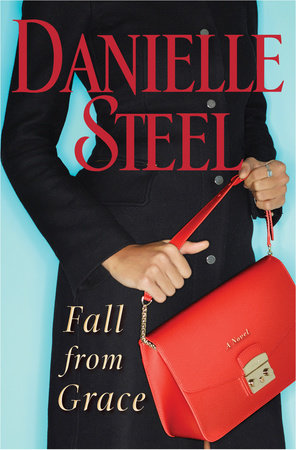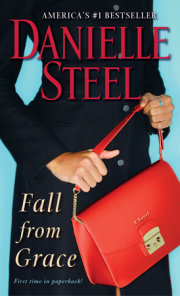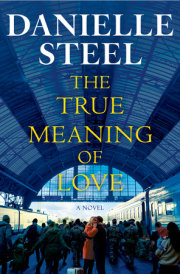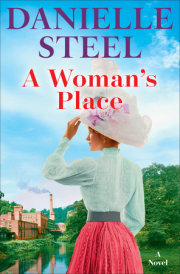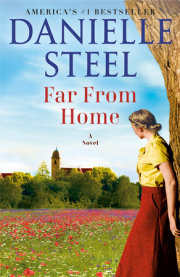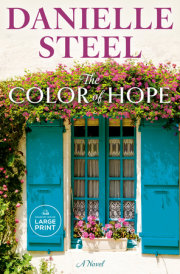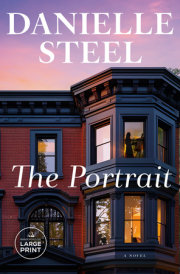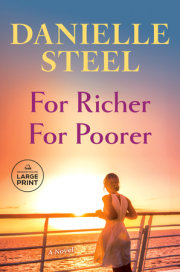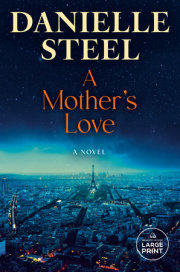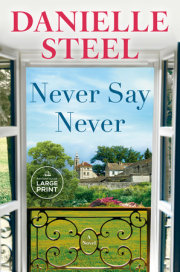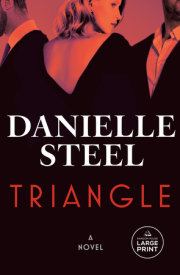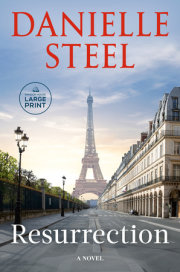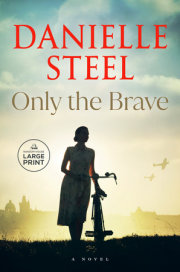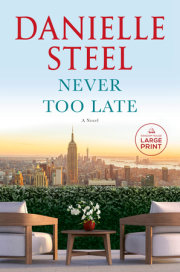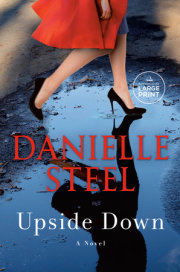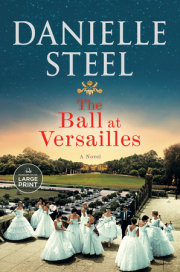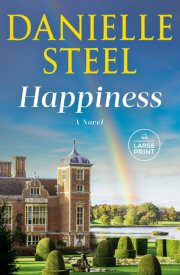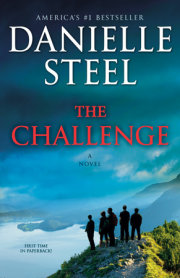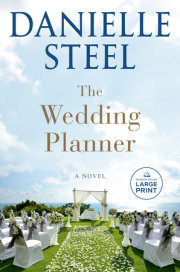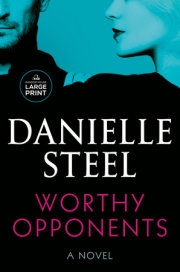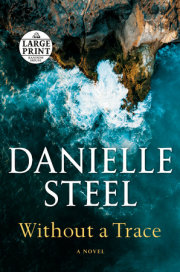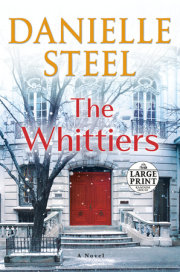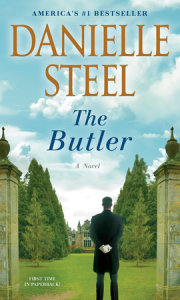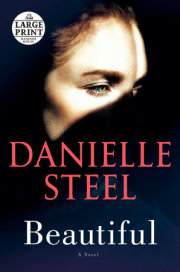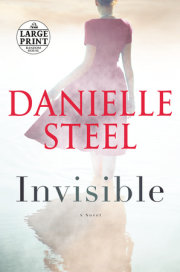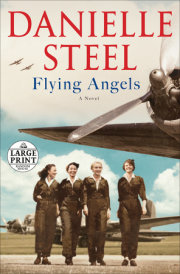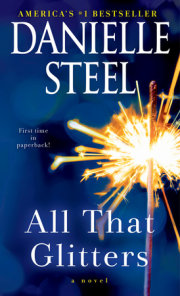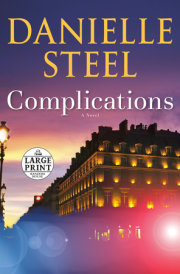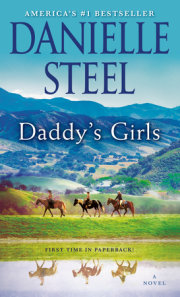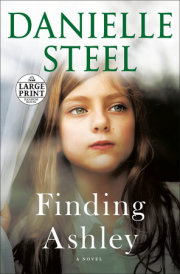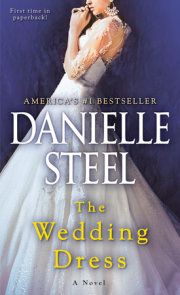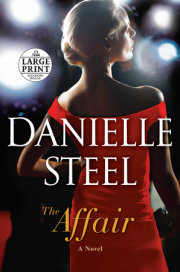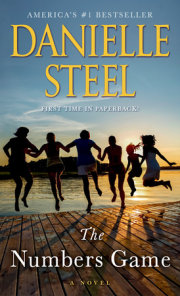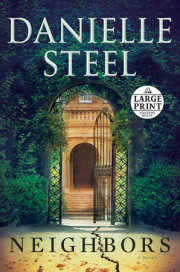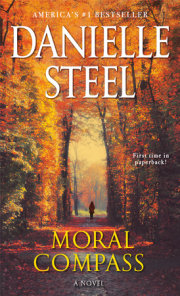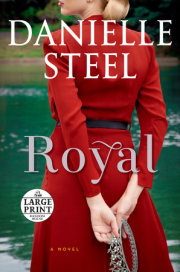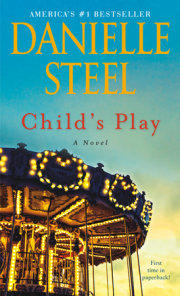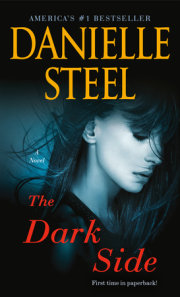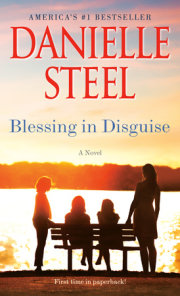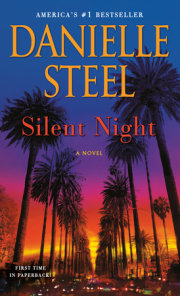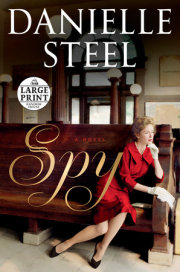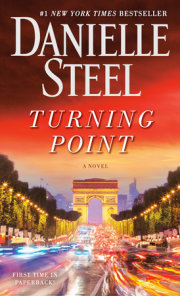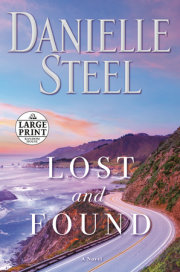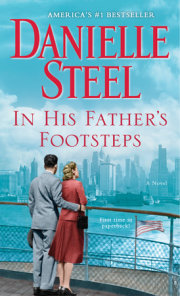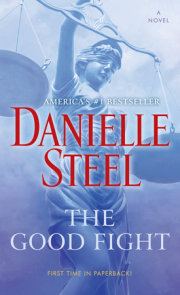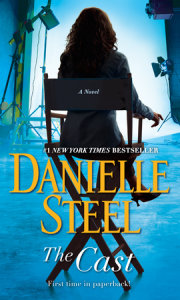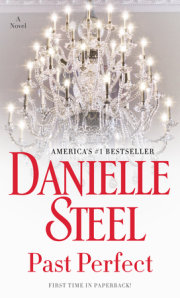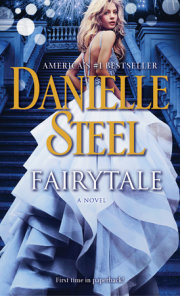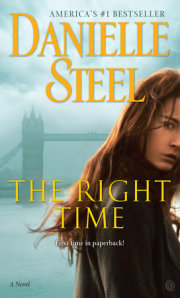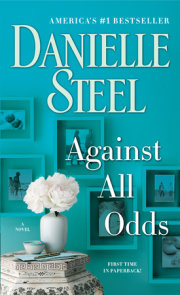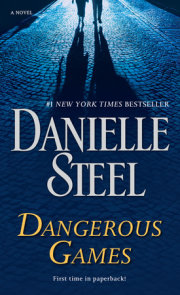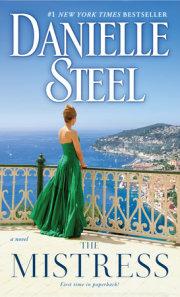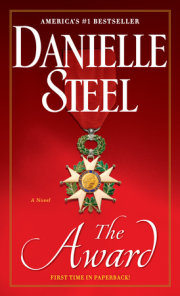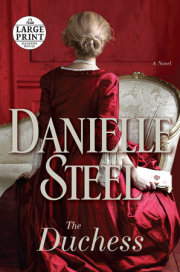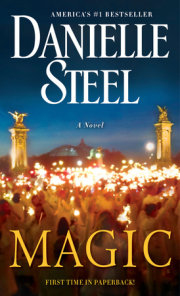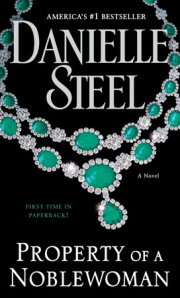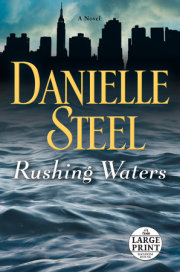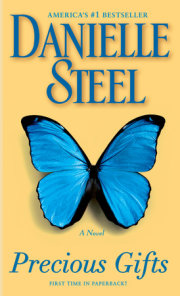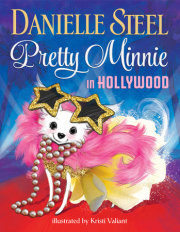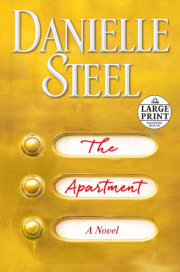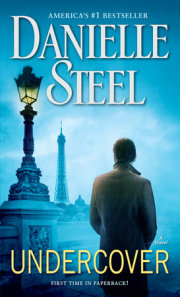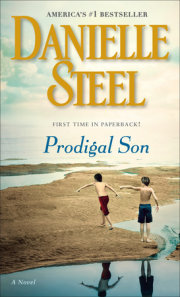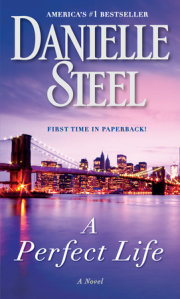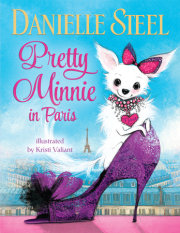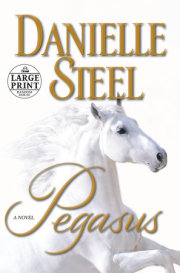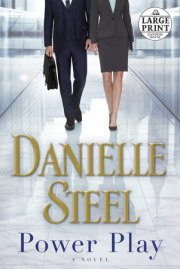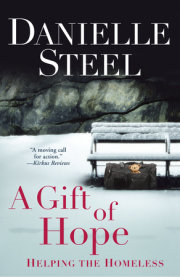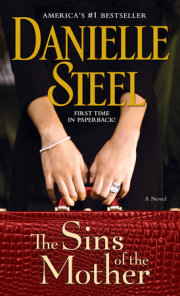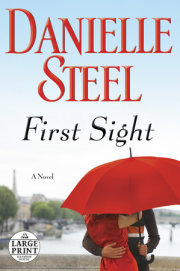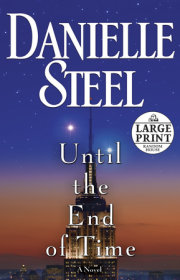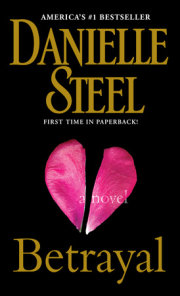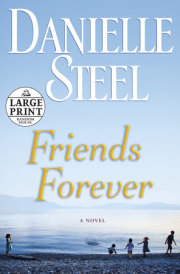Chapter 1
Staring out at the summer rain, Sydney Wells felt as though she were swimming underwater. For the past eight days she had been in shock. Her husband of sixteen years, Andrew, had gone off to do an errand on his favorite motorcycle, on a back road with little traffic near their Connecticut home. He had a passion for fast cars and vintage motorcycles, and had been riding one of his best ones, a Ducati. He had promised to be back in minutes, but four hours later, he still wasn’t home. She imagined he had met up with a friend, or thought of other errands once he was out and enjoying the ride on the warm summer day. He hadn’t answered his cellphone when she called him. The highway patrol said later that he’d hit a wet spot on the road, and some gravel. He’d been wearing his helmet but the strap wasn’t fastened. He was going such a short distance. The bike had slid, his helmet had flown off. They told her he had been dead on impact. At fifty-six. And Sydney was a widow at forty-nine. Everything had an unreal quality to it. Nothing looked familiar, none of it seemed possible, and it seemed even less so once his lawyer came to see her. Andrew had been the head of the investment firm he’d inherited from his father and had been a responsible husband, the father of thirty-three-year-old twin daughters by his first marriage, and stepfather to Sydney’s two daughters, Sabrina and Sophie. They’d had what she considered the perfect marriage, and had expected to grow old together. Sixteen years seemed like but an instant now.
She had made it through the funeral with her daughters on either side of her. Her stepdaughters, Kyra and Kellie, were in a pew across the aisle with their mother, Marjorie, who had flown in from L.A., and Kellie’s husband, Geoff, shepherding them along. They lived nearby and had left their three- and five-year-old sons at home. Kyra lived in New York with her current boyfriend in the West Village brownstone her father had bought her at twenty-five. To keep things fair to both his daughters, he had purchased Kellie the house she wanted in Connecticut, near his own, at the same time. She’d been recently married at the time, wanted babies, and preferred a country life, but with the birth of their second child, the house was too small for them now, and they’d been talking about upgrading for a while, with her father’s help of course.
Their mother, Marjorie, Andrew’s first wife, had moved to L.A. after the divorce eighteen years before, a year before Andrew met Sydney. So Sydney had played no part in their separation, nor the dissolution of their marriage, nor the enormous settlement Andrew had given Marjorie. He was a generous man, even to the woman who remained bitter and angry for two decades after he left her. The marriage had simply died. She was an unhappy woman, eternally discontent, and took it out on everyone. Andrew had finally had enough.
Marjorie’s rage and jealousy had found an easy focus on Sydney, once she met Andrew, and she had successfully poisoned the twins against her. With no valid reason, except their mother’s venom, they had hated Sydney from the first. There had been no turning the tides. They’d been seventeen when their father married Sydney, a pretty blond divorced woman with two little girls, nine and eleven. She had done everything to win over Andrew’s daughters, but their viciousness to her and cruelty to her children finally discouraged her. With Marjorie’s fury to fuel their hatred of her, there was nothing Sydney could do, and she had finally given up. They had hardly spoken to her in the last week and acted as though she had killed their father, when she was grief-stricken, and so were Sophie and Sabrina.
Jesse Barclay, Andrew’s lawyer, had come to the house the day after the funeral. She had to know. Sixteen years had sped past them, and Andrew had never changed his will from the one he’d written before they met. Jesse had looked embarrassed when he told Sydney that he had reminded Andrew to update his will when they got married. He’d always intended to but somehow had neglected to do it, and he’d thought he had the luxury of time. He hadn’t expected to die in an accident, nor to get sick at his age. They had both signed a prenuptial agreement when they married, which kept whatever they had separate, and he intended to amend that too after they’d been married for a while. He was only forty when they married, Sydney had been the same age his daughters were now. When he died, Andrew was vital and alive, at the top of his game, and a loving husband. He had never meant to leave Sydney in the situation she was in now and simply hadn’t gotten around to changing his will or their prenup. He was engaged in living, not dying. He would have been heartbroken if he’d known. The last will and testament still in force when he died left everything to his two daughters. Since he’d written it before he knew her, there was no provision for his second wife.
The house they lived in belonged to his daughters upon his death, and as soon as they were apprised of the situation, on the same day Sydney was, their lawyer advised Jesse that they wanted her out of the house thirty days after their father died. She had twenty-two days left in their home. And in the same spirit, not having met Sydney or remarried when he wrote the will, Andrew had left all of his art, possessions, investments, the contents of the house, and his entire fortune to his two girls. And since the prenup precluded community property, whatever Andrew had bought or owned during their marriage remained his, and now belonged to his daughters. The only exception were gifts he had specifically made to Sydney, with confirmation in writing.
The twins had looked victorious when they showed up at the house together the day they learned of the will and began inventorying the silver, art, antiques, and valuables. Kellie had already taken two valuable paintings and a sculpture to her own home, with her twin’s permission, of course. They said nothing to Sydney about it, and she found the empty spaces they had left when she got home from running an errand. She had sat down on the couch and gasped, realizing what would come next, and how they intended to handle it. Kellie and Kyra had already agreed that Kellie would move into the house since she was married and had children, and Kyra wanted to continue living in New York in the house she owned.
The four days since Sydney had discovered her legal situation as Andrew’s widow had left her dazed and in a state of panic, which she hadn’t shared yet with her girls. She didn’t want to worry them, and needed to figure out what she was going to do before she told them. Essentially, according to his will and reinforced by their prenuptial agreement, she now owned nothing that she and Andrew had shared for sixteen years. He had given her some jewelry, which she had a right to keep, along with a small painting of little value that he had bought her in Paris on their honeymoon. And on their tenth anniversary, he had given her a cozy apartment in Paris on the Left Bank and put it in her name. It was a one-bedroom walk-up, in a charming old building in the city they loved. But it had none of the pretensions of opulence that would have attracted the kind of buyers willing to pay a high price, if she needed to sell it now.
She had given up her career as a respected dress designer for a well-known firm when they married. It had been a hard decision for her, but Andrew had wanted her free to spend more time with him, and pressed her to give up the high-pressure job that had supported her and her daughters since her own divorce seven years before they met. The idea of no longer working was daunting but appealing, since she would not only be able to be with him, but with her daughters as well. She had finally succumbed to his entreaties and quit her job a month before they married. She hadn’t worked since, and stopped missing it after a while. Their life was full. They traveled and were together and with their respective children, and they went to their favorite city, Paris, for romantic trysts once or twice a year. They loved knowing they had the apartment there and could go any time.
Other than that, Andrew had handled the disparity in their finances discreetly, with kindness and grace. He kept a joint checking account sufficiently funded so that she could pay the monthly household bills and buy whatever she wanted without asking him or feeling like a charity case. He never questioned what she bought, and she wasn’t an extravagant woman. She had worked hard for what she earned before they were married, and was grateful for the life of ease he gave her, and everything he did for her and her two girls. And although she had no income of her own once she stopped working, they had lived well on his generosity for sixteen years. And suddenly, overnight, her situation was dire. The only money she had was what was in their joint checking account, and after she paid their outstanding bills with it at the end of the month, there would be little left. He usually funded the account once a month, so there was almost no surplus in it at the moment, enough to live on for a short time if she was careful, but not for long, and not forever. Had he left her even a small portion of his fortune, she would have been set for life, although she never thought of it.
For four days she had lain awake all night, thinking about her situation and trying to figure out what to do next. She cried for him and the shocking loss she would have to learn to live with, of a husband she had loved profoundly. And in addition she had to find a way to support herself, and quickly. She needed a place to live and a way to pay the rent and eat after the money in their checking account ran out. Everything else belonged to Kellie and Kyra now. They had said she could keep her car and her clothes, and little else. They had finally won the war they had waged on her for so many years. The victory was theirs, and Andrew had played into their hands without meaning to, by never redoing his will once he remarried. If he’d had any inkling something like this could happen, he would never have left her at their mercy. He was well aware of how vicious they were to Sydney, and had complained about it to his daughters many times.
Both her daughters had good jobs and supported themselves, and enjoyed the occasional helping hand from their stepfather. But Sydney was entirely financially dependent on him, and had been ever since she gave up her job when they married. Her first husband had left her with nothing except her salary, and paid a pittance as support for the girls. He had met a wealthy woman and moved to her home in Dallas shortly after the divorce, rarely seeing his daughters. Two years later, he and his new wife were killed when their small private plane crashed while they were on safari in Zimbabwe. Andrew had acted as father to her girls ever since they’d been together, and had supported them too, once Sydney gave up her job, until the girls were employed and could live on what they made. He had put both her girls through college since she couldn’t. And he had always been wonderful to them and interested in everything they did. And now they had lost him too.
Sydney’s genuine grief over losing Andrew was compounded by her terror over what was going to happen to her, and what she would do when her checking account was empty, which would be very soon. From a life of stability, security, and luxury, she had been cast into uncertainty. And she had been out of the job market and the design world for too many years to find employment easily, especially in her old field. She wasn’t even up on the computer techniques designers used to draw today. She still sketched the traditional, old-fashioned way. She was behind the times and virtually unemployable after sixteen years out of the business. It was her worst nightmare come true. She had lost Andrew, and after years of depending on him, she could no longer support herself, except by waiting on tables or selling shoes. There was nothing else she could do. She couldn’t even get a job as an assistant or secretary without knowledge of current computer programs. Her only talent was design, but her skills and contacts were obsolete.
Copyright © 2018 by Danielle Steel. All rights reserved. No part of this excerpt may be reproduced or reprinted without permission in writing from the publisher.

